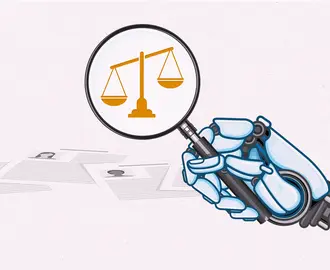Data
3 challenges for chief data officers in finance
Financial services first elevated the data function as a protective measure. Now CDOs are helping firms boost efficiency and tap new market opportunities.
There are financial services executives who care about data quality, and then there is Veda Bawo, who self-identifies as a “data evangelist.”
“I am an accountant by training — I have booked the journal entries, closed the books, done the regulatory reporting. So I know what it feels like to have to deal with dirty data every single month, every single quarter,” Bawo said.
Bawo, now director of data governance at global financial services company Raymond James, spoke at the recent MIT Chief Data Officer and Information Quality Symposium as part of a panel exploring the evolving status of the data office in financial service firms.
The role may have started out as a defensive function focused on regulatory compliance following the 2008 financial crisis, said Althea Davis, the former chief data officer of challengers and growth markets at ING Bank. But it hasn’t stayed that way.
“Now we serve many masters. We have to deal with all of the privacy requirements. We have to deal with the multiple compliancies. And we have to deal with data operations and all of the sexy emerging technologies like artificial intelligence and data science,” said Davis, global data governance manager at Heineken International.
And all of that has to be done against a backdrop that grows more competitive by the day, with fintech startups, challenger banks, and multinational media companies pushing into financial services’ traditional territory.
“We're no longer just competing with other financial service organizations, we're competing with Amazon and other actors. In this landscape, we have to be creative and competitive against those folks,” Bawo said.
Further reading: Make room in the executive suite for CDO 2.0
Here are three challenges data officers face as they try to mature the data function in their financial services organizations.
Establishing a data office
Everyone knows what a chief financial officer does, regardless of an organization’s size or specialty, whereas the chief data officer is “the new kid on the block,” Davis said.
“The CFO has got the 4,000-year history behind him or her; the CIOs, CTOs, they've got the 50 – 60 years up on us. But we’re the newest to the table. So we have to carve out our space," Davis said.
Is the CDO in charge of data science? Analytics? Privacy? Security? Is it a dotted-line responsibility to all of the above? That ambiguity means it’s on the data officer and senior leadership to define the responsibilities of the role.
Those responsibilities will vary widely depending on what the organization needs most urgently, said Richard Y. Wang, who has served as CDO for the state of Arkansas and deputy CDO of the U.S. Army.
“If the complaint is they have 50 data scientists and aren’t getting anywhere, you need data integration. If the issue is GDPR, you need to do compliance. Other companies want the CDO to help them reduce costs and increase revenue or make departments more efficient and effective,” said Wang, who as an MIT Sloan professor coauthored a 2014 working paper on the emerging role of the CDO. Newly minted CDOs should appoint two deputies, Wang said — one technically oriented to track and understand the types, status, and location of all the data in an organization; the other business-oriented, to best understand how to leverage that data for strategic advantage across the enterprise. And then add a program manager, to coordinate all those efforts.
As you build from that base, look for people with “deep, deep, deep data skills in multiple directions,” Davis said — including those who are well-versed in governance and policy as well as “people who are more analytical and can work on data modeling and metadata.”
Aligning with business objectives
CDOs must build a data strategy that aligns with business objectives while still taking care of backroom data quality and governance issues.
Aligning with business objectives requires partnering with stakeholders around the organization to grow the business, deepen customer engagement, and identify new product and service opportunities.
“You need to be able to help put their teams in a position to act,” Davis said. “You need to be relevant to your peers, and your contribution needs to be actionable. If you don't have all of that combined with trustworthiness, you're dead in the water.”
But to do that, your data quality has to be excellent, Bawo said.
“You can have all of the fancy tools and you can have a million data scientists, but if the quality is not good or not sufficient, then you're nowhere,” she said.
Bawo’s goal is for data quality and governance processes to become ingrained in her organization as a normal course of business. That includes making sure governance is part of the mix as new applications or databases are implemented and ensuring that teams know they are accountable for the care and upkeep of their data up- and downstream in the organization.
Scaling data successes
The lasting value of a well-functioning data governance practice is that it produces data that can be used and reused endlessly, with value increasing each time.
That means CDOs should take care to mature their data practice as they take on new projects, rather than responding to one-off requests that don’t scale, Davis said.
Adhering to a well-articulated data strategy and governance guidelines will make it easier to identify gaps where capabilities need to be built that can then be used elsewhere in the organization.
“If I am partnering and understanding and putting controls around a significant data set, then other folks can benefit from that work effort, too,” Davis said.




